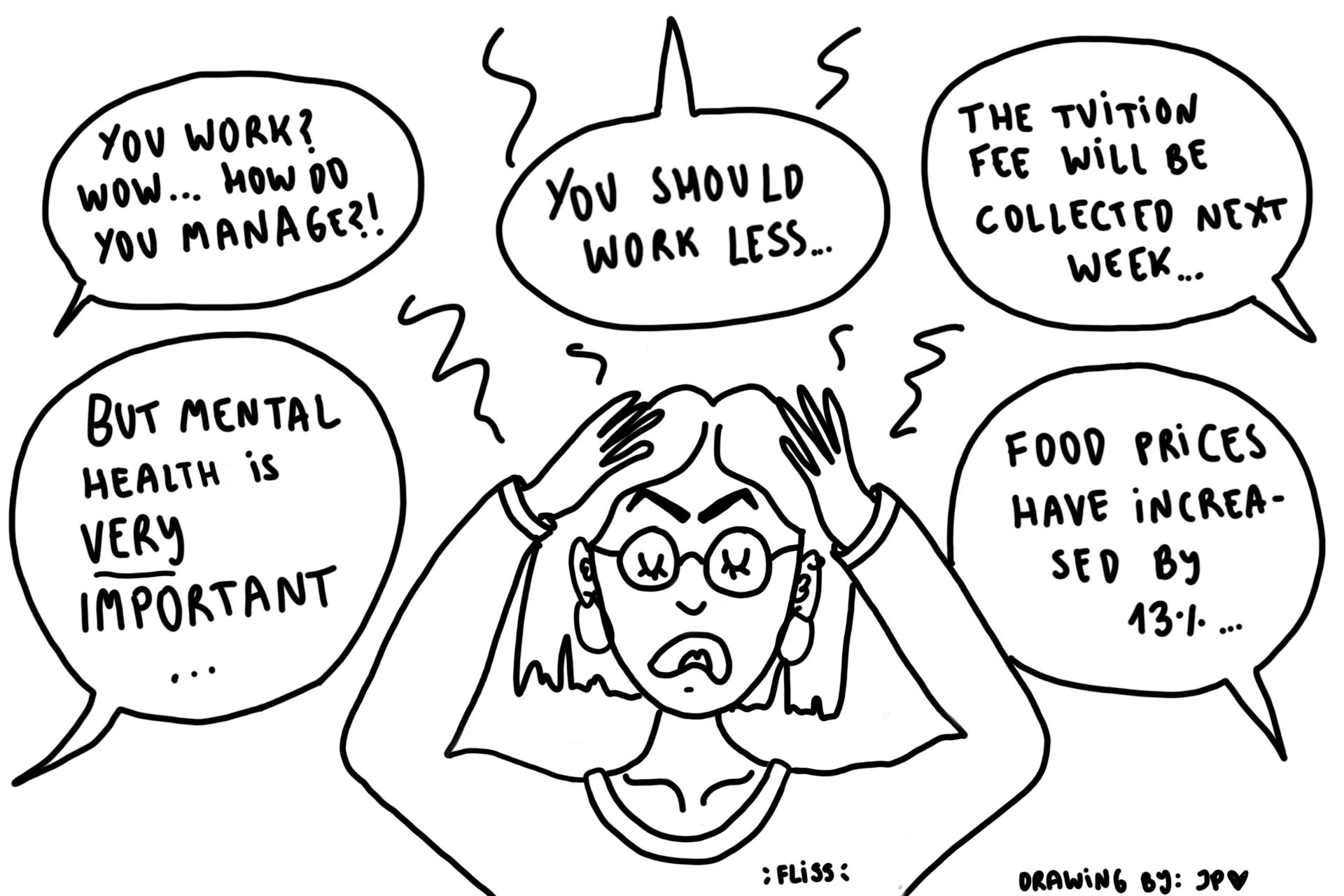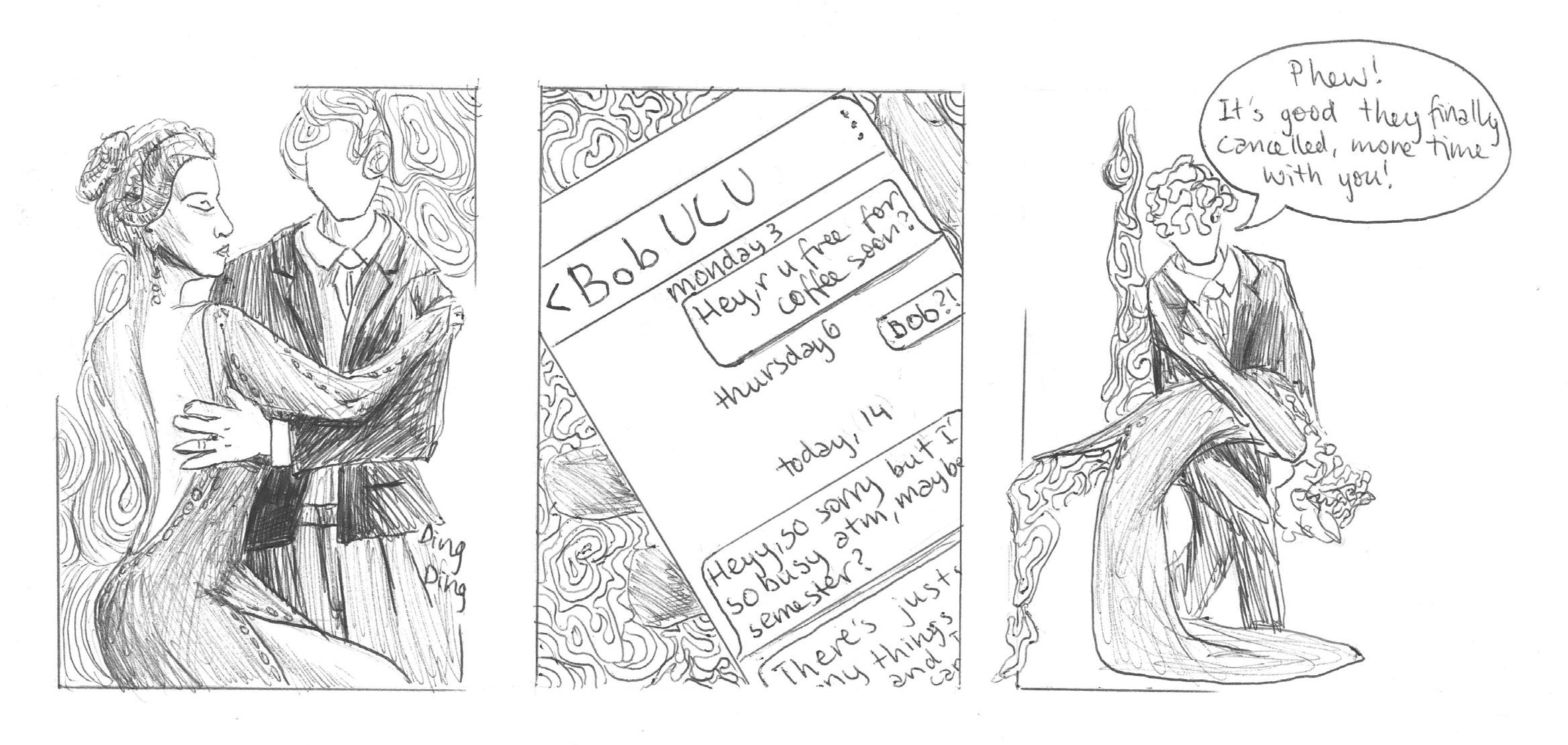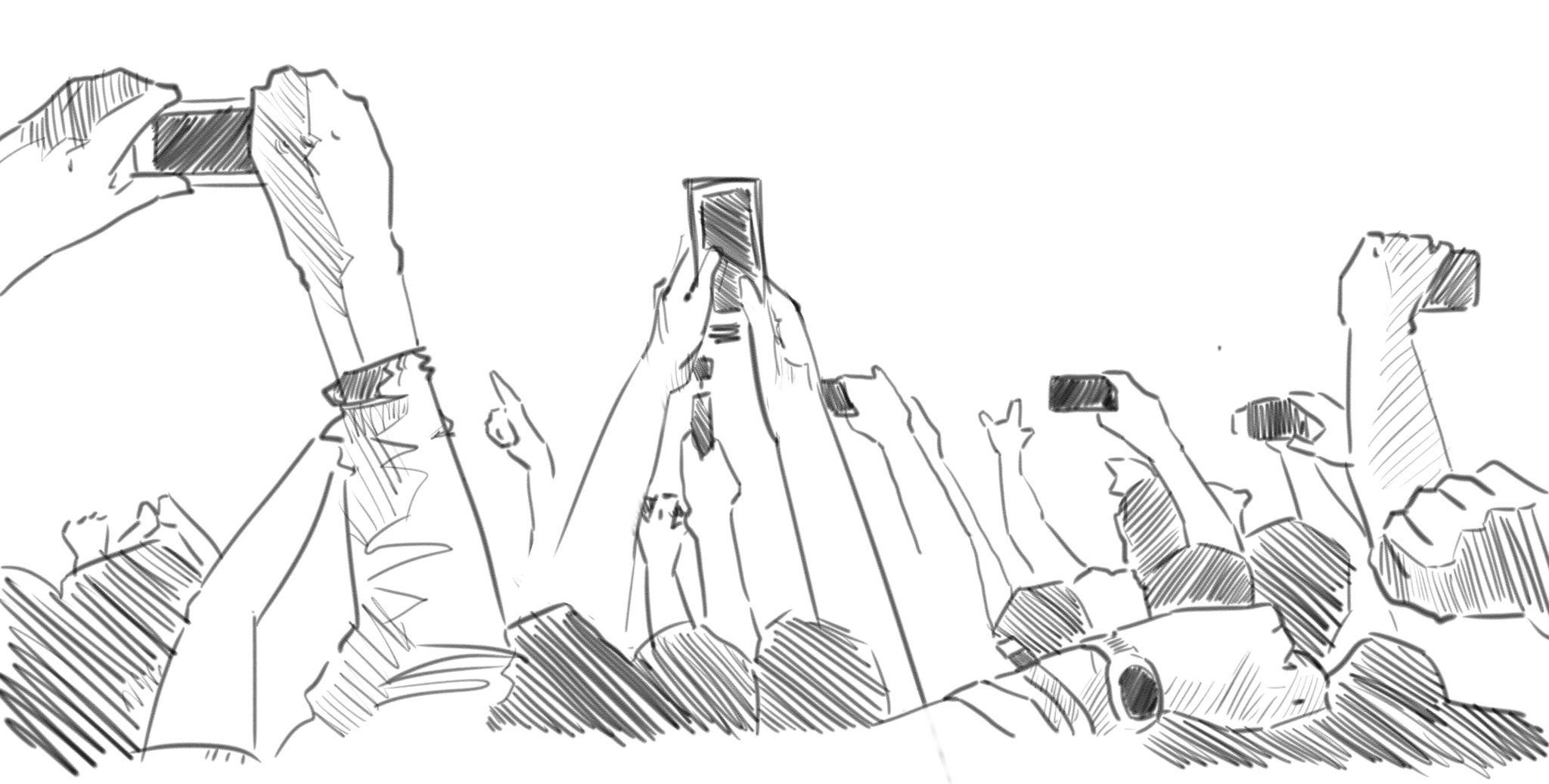
6 minute read
The Life and Wisdom of Our (House) Master
from Winter 2022
by Ida van Zwetselaar
Ever since starting my job at reception, I have been both blessed and cursed by weekly doses of Maarten Diederix, who drops by College Hall on a regular basis to grab himself a coffee, work through his never-ending list of chores, or have a chat with the staff. And trust me, these conversations are more than just getting scolded for ‘forgetting’ about smoking-free campus rules, or placing fire-hazard objects in our units’ hallways. This is the real juicy UCU stuff. He loudly announces his presence when entering the building by singing “it’s going to be a cold, cold Christmas” and then drops a gossip bomb, controversial statement, or hot take on whatever he happens to be annoyed with that day.
Advertisement
As a third-year that has encountered the landlord several times, but mostly perceived him through campus-wide horror stories, getting to know the man as a colleague was conflicting but intriguing. While discussing the fate of all the (hard) drugs he has confiscated over the years and keeps at home, I thought to myself, ‘what a shame it is that the majority of students never talk to this iconic person, nor do they actually know anything about his life’. We mostly see him as a grumpy middle-aged man who shouts in your face and tends to throw around his way-too-problematic views for our predominantly left-leaning campus. Since he’s been here since the very beginning, The Boomerang board decided to send me and Sophie Hudson on a dangerous quest to interview Maarten Diederix. This is but a glimpse into the life and wisdom of our housemaster.
watched Maarten arrive on his bicycle whilst rubbing the sleep from my eyes. We brace ourselves for his company. No way was I going to sit him down to answer an adversarial questionnaire all by myself… “Let’s start with a simple introduction of who you are,” I began, and in under a minute we were already debating the importance of sharing and caring about gender identity and sexuality. I thought that this article would probably end up being a confirmation of all the prejudices we have about him, convinced that I could predict exactly where the discussion would go. But if that had been the case, this double spread would not have been possible.
Maarten Diederix was born in 1962 in Leiden as the second-oldest son of a Dutch geologist and psychologist. Before moving to different African countries, the four of them lived in a one-room apartment. “So just a reminder to those who find the rooms on campus too small. It’s still a student house. [...] Like, people coming here ‘I can’t live in Wall 1 because it’s too little room’”, he said mockingly. “What does that even mean? You have a bed, a closet, what more do you want?” In fact, according to him, we shouldn’t complain about our living conditions, but acclimatise to these issues instead. You have a cold room? It’s not actually the temperature, but the way you think about it!
I want a kitchen on campus where everyone can come together and cook. I know it’s going to end terribly badly - when Primus or Equites moves in
“Well, if you had to live in one unit on campus, which would it be and why?”. He struggled to answer for a while, but we ended up laughing about the fact that he implicitly admitted not wanting to live in any of them. He says that everyone in Wall has it bad because of the tiny kitchens point of getting upset about it? “I have lived in five countries, I went to so many schools. I moved so often. I mean, I live wonderfully in a big house. But if I had to leave, I don’t care. I already know that the inside of all the buildings is the same: there’s a wall, there’s a window, there’s a door”.
He told us about when Dining Hall’s catering was still open, and his wish for UCU to be more of an inter-cultural meeting space, not just an academic beehive. “I’ve asked the university repeatedly to say out loud that part of living and studying together is what - is why we are”. It’s what makes our college so special - the opportunity to meet other students from different parts of the world, and to spend three years of your daily life surrounded by them. “I want a kitchen on campus where everyone can come together and cook. I know it’s going to end terribly badly - when Primus or Equites moves in - but I want it more to be about unknowns coming together”. Diederix loves “the concept that you come to a table alone, and within ten minutes you’ll be surrounded by people”. I tried to imagine this, but isn’t it too idealistic for UCU students? Is it perhaps the nostalgia for his own international school experiences speaking?
As a child, Maarten grew up wherever his father’s job took him, from diamond mines in South Africa’s to gold ones in Botswana’s “middle of nowhere”. Later on, in Zambia, he attended boarding school in an English colonial area that was focused on “sports, sports, sports!”, which he loved. It’s not like he had any money to spend on doing anything else anyway. “It was a school of 2000 students, me and my brother were the only white ones [...] Not a word about it would be shared. They didn’t feel it, we didn't feel it”. Sophie asks “When did you start feeling it?”, but halfway through the sentence we get a “Never”. Remarkably, he then brings up how green the colonies in Africa were, and that a third of Chingola used to be covered in golf courses;
“That’s why I’m big fan of the royal family, because they always leave behind their traces, that cannot be
Sophie asked whether Maarten thinks they never saw colour because of the white privilege he has. I internally thank her for being so direct, because it seems hard to communicate with him otherwise. “You keep on saying ‘privilege’”, he responds, “I didn’t have a white privilege, I had money privilege”. “Uh huh, okay…” Sophie and I exchange glances, unsure how to respond. “And why? Because we earned those skills.” break”. Also, having worked on an oil rig afterwards explains his rough-around-theedges personality. then you’re lucky. But it does influence you, and it makes you so much weaker”. I mean, to a certain degree I agree with this - until he rambles on about upper-class parents corrupting their children’s lifestyles; “when I see one of our UCU students come on campus after the break week by cab, from Schiphol? Then fuck you, you’re dumb!”
Let’s try another question: “What do you think of the diversity on campus?”. “I mean, there are too many women,” he responds, “and women don’t appreciate this. This is my personal opinion, but it’s easier to work with a man than with a woman. That is something that all men will say, and half the women.” After attempting to mansplain the meaning of those percentages, he proceeded to recount an anecdote of when the first woman arrived at the oil rig and the entire dynamic changed.
When Diederix’s dad tried to enrol his younger brothers in the same school and the headmaster disagreed, they moved back to the Netherlands. “Did he quit his job because he got angry at the headmaster?”. “Yes, I had a strange father”. His parents were very concerned about their children’s education, and any day not spent in school was considered wasted. After completing HAVO, Maarten went to military school, which he tells us about with sparkles in his eyes; “voracious”, “lots of fun” and “a game” are definitely not what I’d have associated with such a place. He is a commando, which explains his loud voice and rigidity. “They want to break you. That is the agreed-upon game. By pushing you so hard in the physical that you lose the mental”. “Do you feel like they ever broke you?” we asked. “No, they can’t. Because there’s nothing to
“In a good way?”, Sophie asked hopefully. “No, no, no! It’s a really manly surrounding. A woman is just not correct - it doesn’t work”. Noticing that we didn’t quite understand his point, he elaborates; “A lot of men chasing her [...] there was never anything sexual in the whole building, and now suddenly there was”. I started to formulate in my head how to tell him that maybe the woman herself was not the problematic factor in this scenario, but I knew that he wouldn't sympathise with my position.
We move on to discussing economic inequalities, as Sophie and I wonder whether growing up abroad changed his perceptions of background-based advantages. “Look, look, look, I think everyone deserves happiness. If you’re born rich,









